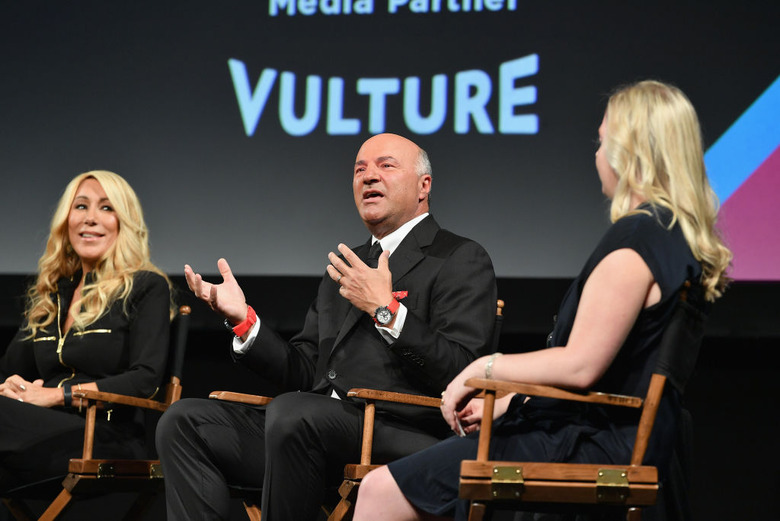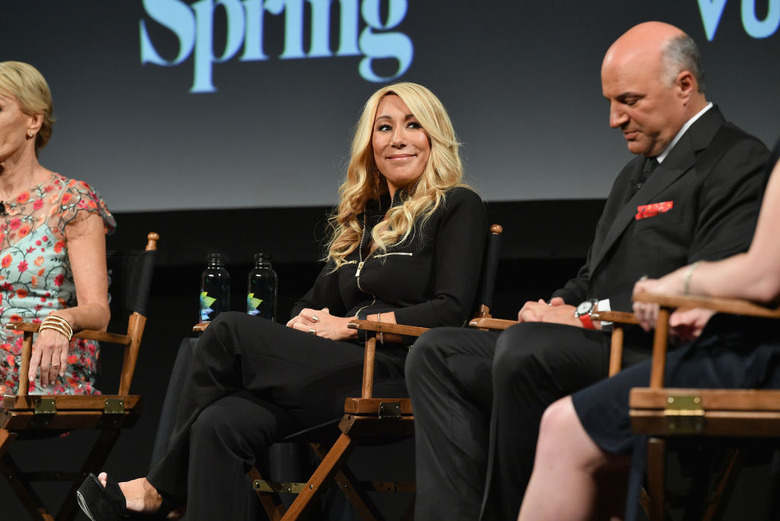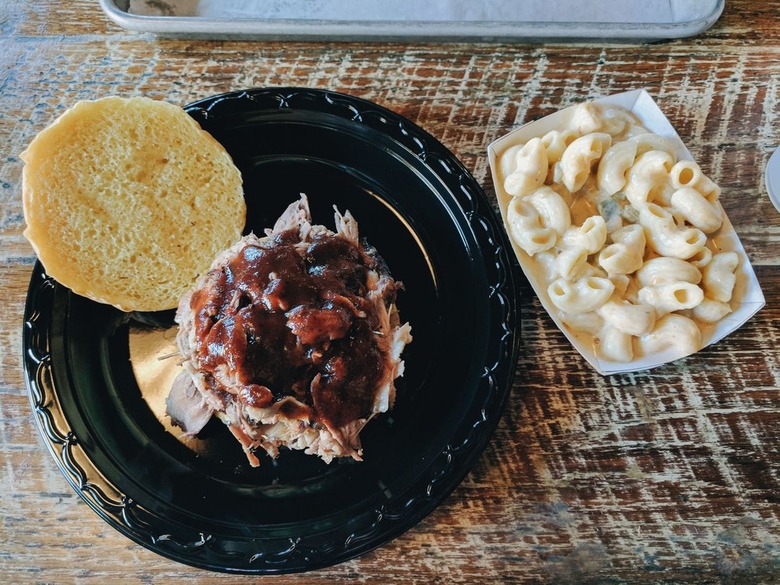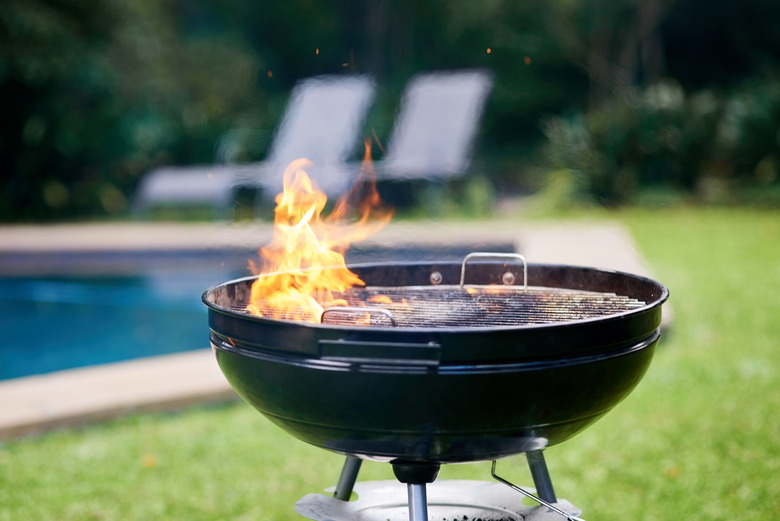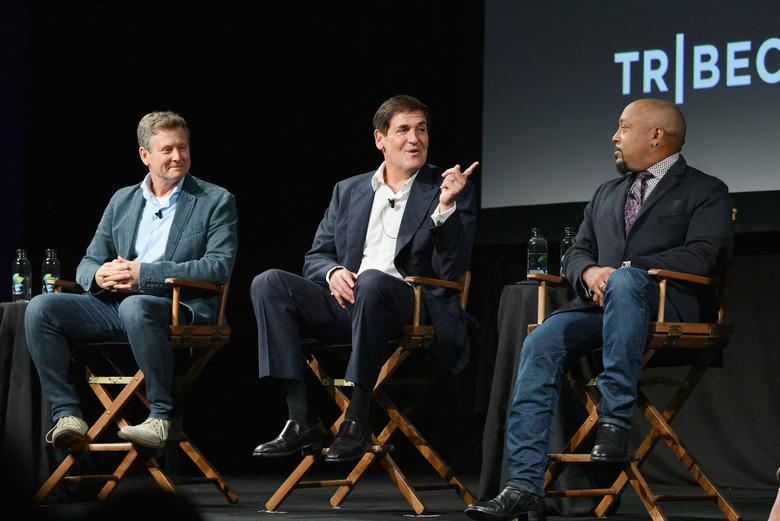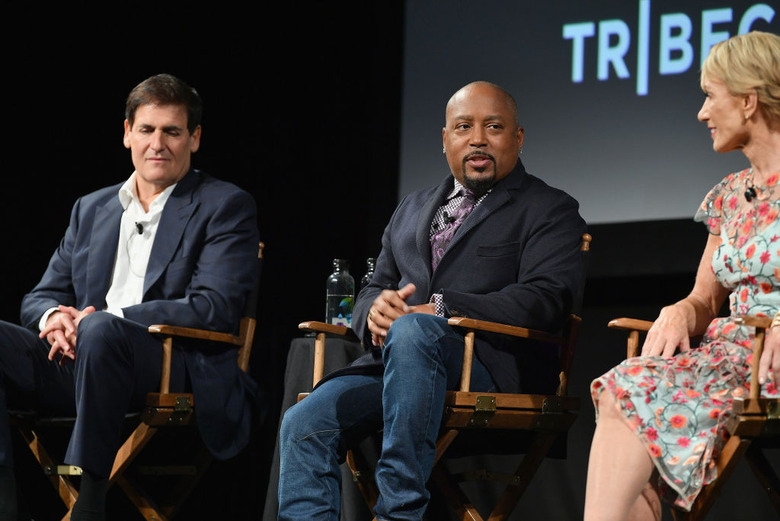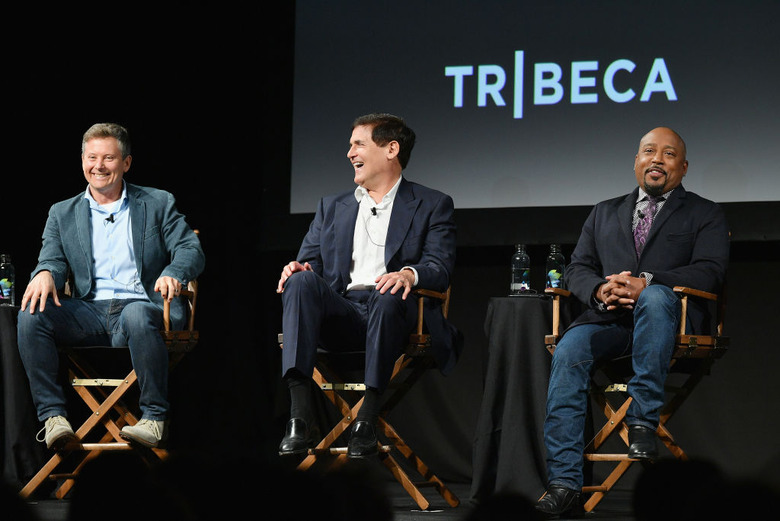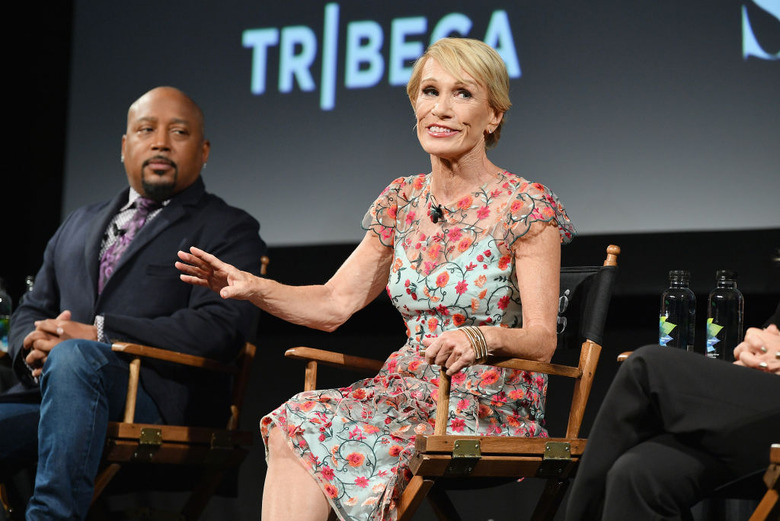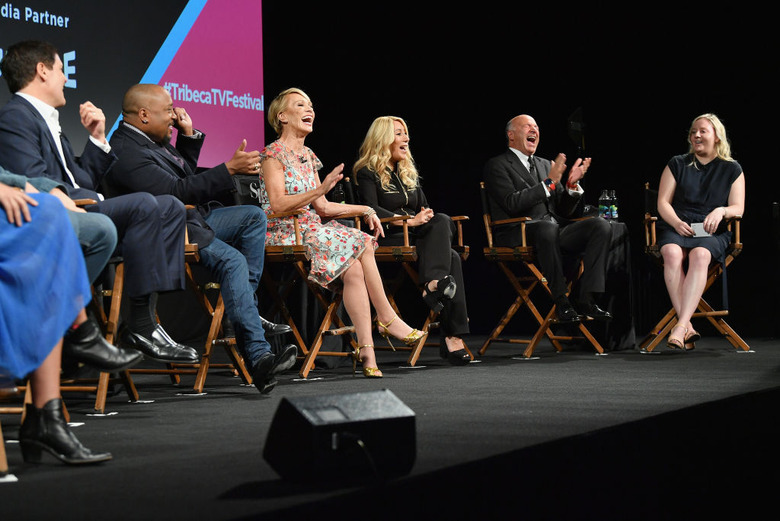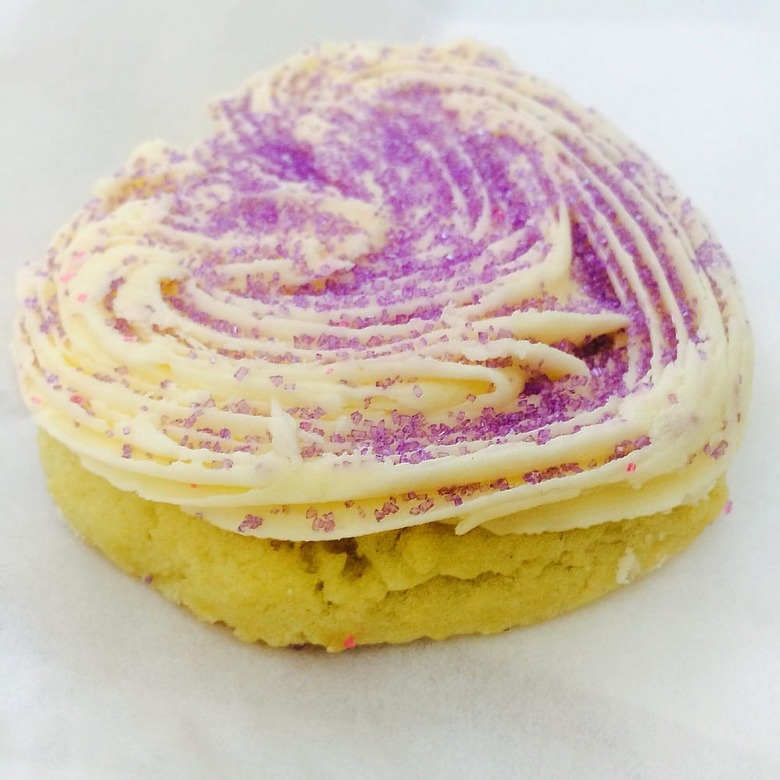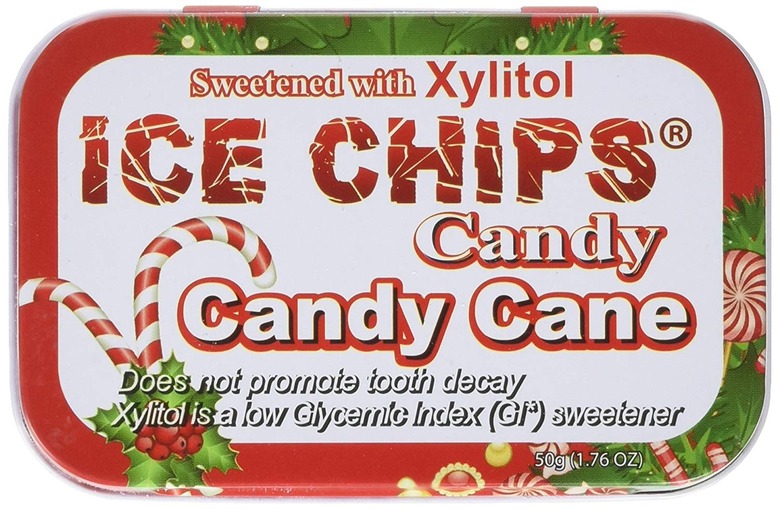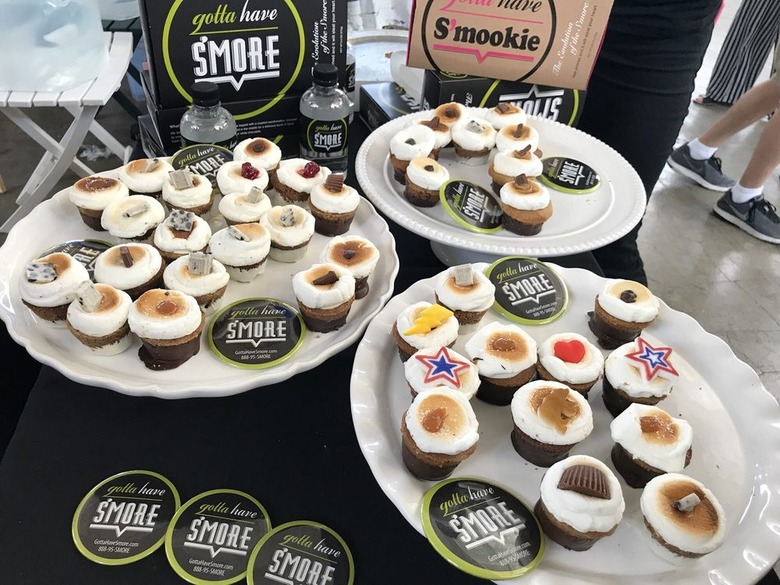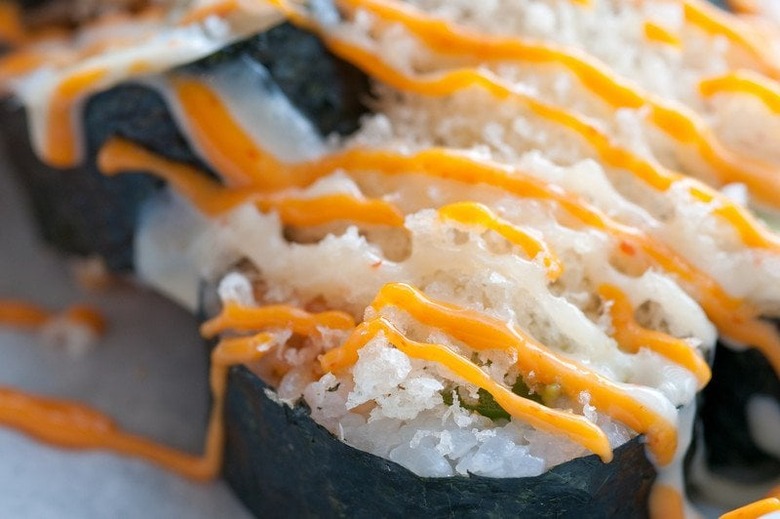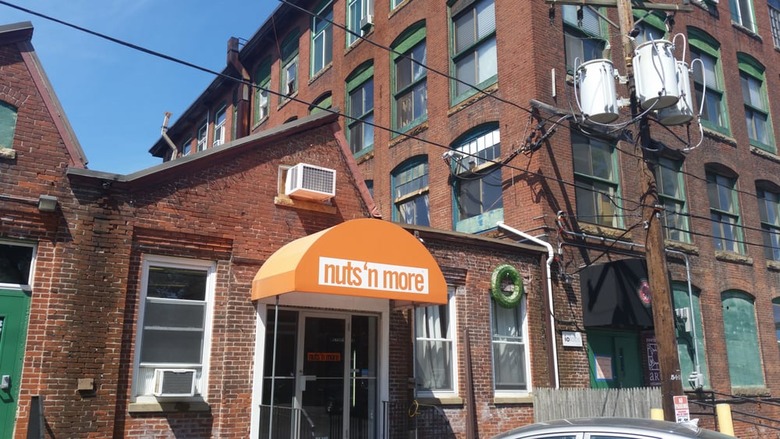22 'Shark Tank' Food Pitches: Failed & Funded Slideshow
A look at all the food-related pitches on the ABC show.
Mr. Tod's Pie Factory
Tod Wilson, from Somerset, N.J., went on Shark Tank to pitch his homemade pie company. The pies are made with only the finest ingredients, spices, and butters, with his 4-inch sweet potato pie being the main seller. Wilson's goal was to take his company and launch it into a household brand. While on the show, he pitched his company and asked for $460,000 for a 10 percent stake in the business. "Sharks" Barbara Corcoran and Daymond John invested for the full amount but in turn asked for 50 percent of the company. Since making the deal, Wilson tripled his business, opened a new retail location, and sold tens of thousands of pies on QVC.
Captain Ice Cream
Tim Gavern, founder of Captain Ice Cream, a mobile novelty ice cream vending business, went on Shark Tank asking for $48,000 for a 25 percent stake. The premise behind the company is that Captain Ice Cream drives a custom three-wheeled mo-ped and wears a unique uniform while selling Popsicles and ice cream. Overall, the investors weren't impressed with the business model and ultimately decided there was no deal to be made. In 2010, following its appearance on the show, the business was offering complete turnkey franchises for other small business owners to own and operate their own Captain Ice Cream mo-peds.
Granola Gourmet
Granola Gourmet was founded by Jeff Cohen, a diabetic who was frustrated with the lack of good-tasting snacks that wouldn't spike his blood sugar. He launched his own company made up of 100 percent natural, low-glycemic energy bars marketed toward families. While on Shark Tank, he asked for $175,000 for a 25 percent stake but was turned down by the panel of investors. Prior to the airing of the show, the energy bars were located in 35 stores nationwide. Today, the product is booming and is in more than 600 stores including Safeway, Vons, and Whole Foods Market, as well as Amazon.com.
Element Bars
Chicago native Jonathan Miller started Element Bars, which creates custom energy bars catered to the taste of the consumer ordering it. At the time Miller went on the show, the business was shipping 1,000 bars per week, but was looking to take his business to the next level. He asked for $150,000 in return for a 15 percent stake, but struck a deal with Kevin Harrington for a 30 percent stake in the business. Since the investment, the company is booming, and Miller has moved into his own facility, having previously worked out of a small wedding cake bakery. Element Bars is projected to sell 1 million bars by the end of the year.
Pork Barrel BBQ
Pork Barrel BBQ was created by Heath Hall and Brett Thompson from Washington, D.C. The all-American barbecue sauce and rub company went on Shark Tank asking for $50,000 for a 10 percent stake. Investor Barbara Corcoran decided she was interested but renegotiated for a 50 percent stake. Since the airing of the show, the company opened its own Pork Barrel BBQ restaurant and currently has their products in roughly 3,000 stores in more than 40 states with more than $1 million in sales.
Grill Charms
Leslie Haywood of Charleston, S.C., invented Grill Charms, stainless steel identifying charms that you stick in your food before you put it on the grill. During the grilling process, one can identify if the meat was medium, rare, well-done, and so on. Haywood was seeking a $50,000 investment in exchange for a 25 percent stake in the company and worked out a deal with Robert Herjavec for what she asked for. Since the investment, Grill Charms sales have increased more than 5000 percent and have made it onto the shelves of Ontario Gas & BBQ, the largest BBQ store in the world.
Soy-Yer Dough
Sawyer Sparks of Bloomfield, Ind., created Soy-Yer Dough, a wheat-free soy-based modeling clay that is certified gluten-free (apparently for gluten-free kids who can't stop eating Play-Doh). The owner asked the investor panel for $125,000 for a 25 percent stake in its business. Daymond John, Kevin O'Leary, and Robert Herjavec teamed up to invest $300,000 for a 51 percent stake instead. In 2012, after the show aired, the company had to recall batches of the dough, citing missing ingredients that made the play dough not gluten-free.
Cornucopia Express
Dr. Geoffrey Broderick, a veterinarian, along with his daughter Kristina Broderick of Huntington, N.Y., created a line of probiotic food for cats and dogs. The duo asked for $300,000 for a 15 percent stake in their business, but was turned down by the "sharks." They questioned the validity of the doctor's claims that his pet foods offered preventative nutrition and will help pets live longer.
The Chef in Black, Inc.
The Chef in Black, a Chinese dressings and seasonings company, was created by Dorene Humason. The company's products were already being offered in 1,300 stores nationwide at the time of the show, where Humason asked for a $50,000 investment for a 10 percent stake in her business. Barbara Corcoran invested $50,000 but for a 35 percent stake. Since the airing of the show, Humason and Corcoran have differed in terms of products and marketing and which direction they'd ultimately like to the company in, and it's unclear if they're still working together.
Painted Pretzel
Raven Thomas launched a chocolate-covered pretzel company several years ago and has since grown it into a larger company with unlimited flavor combinations. Mark Cuban was impressed by her company and agreed to invest the $100,000 for a 25 percent stake. Since the show, the company grew from $75,000 in sales to almost $350,000.Cuban also helped get the Painted Pretzel into Landmark Theatres, where it's now sold.
Puppy Cakes
A canine-friendly cake mix called Puppy Cakes was launched by Kelly Chaney. Her company had already $80,000 in sales over four years and received positive press in many pet-friendly magazine outlets. Chaney asked the "sharks" for $50,000 for a 25 percent of her business, but was turned down by the entire panel. Today, Puppy Cakes are sold in retail stores, on their website, and on Amazon.com.
Bark'em's To Go
Blake St. Clair launched a company creating prepackaged meals for pets that are easily transportable. The meals have separate compartments that contain full servings of premium food portioned for different sizes and species of pets, with vitamin-enhanced water and a treat. St. Clair approached the panel for $100,000 for a 51 percent stake in his company, but the "sharks" did not see value in his business proposition.
Brewer's Cow Ice Cream
Beer and ice cream go well together, believe founders Steve Albert, Larry Blackwell Jr., and Jason Conroy of Brewer's Cow Ice Cream. The beer-infused ice cream company asked for $125,000 for a 15 percent stake in their business with flavors only limited to the amount of good beers there are in the world. The "sharks" weren't in love with the idea and turned down the deal.
Blondie's Cookies
Brenda "Blondie" Coffman started a company that produces 25 varieties of handcrafted cookies and brownies. At the time of her appearing on Shark Tank, she had 12 retail locations in Indiana and Florida and $2.3 million in sales the previous year, but was having a problem with the Florida expansion and was going into debt. She asked the panel for a lofty $200,000 investment for a 3 percent stake in her business but it wasn't enough for the "sharks" to bite. Since the airing of the episode, online sales have dramatically increased, according to the company.
Wild Squirrel Nut Butter
College students Erika Welsh and Keeley Tillotson from Oregon created and launched this homemade peanut butter company in their apartment. Before the show, the duo had sold thousands of jars on their website for a $14,000 gross and a $7,000 profit. They requested $50,000 for a 10 percent stake in their business, but Barbara Corcoran countered and offered them $50,000 for a 40 percent stake, which they accepted. Welsh and Tillotson decided to postpone their college careers to focus on their business fulltime; they have sold $350,000 in peanut butter in the last year and are projected to sell $1.2 million in the next 12 months.
Ice Chips
Grandmas Beverly Vines-Haines and Charlotte Clary created Ice Chips Xylitol candy as the yummiest, healthiest candy on the market with 17 exciting flavors. The product, sold in health food stores, was a hit with the "sharks" as well as dentists around the country. At the time they went to pitch their product to the panel, the founders had $342,000 in sales in a year and were projected to make $1 million by the end of that year. Barbara Corcoran and Mark Cuban committed $250,000 in capital for a 40 percent stake, where originally the duo was willing to part with a 15 percent stake. The product is currently sold in 1,000 stores across the country and can be found in all 50 states.
Fat Ass Fudge
Donna McCue, founder of Fat Ass Fudge, created a gluten-free version of her grandmother's decadent fudge recipe. The fudge is made from goat's milk and at the time she appeared on Shark Tank, the company had $60,000 in sales and was in two Whole Foods stores. For an investment of $250,000 she offered the sharks an opportunity for a 5 percent stake in her business. They decided the business transaction didn't make sense for any of the individual "sharks."
Sub Zero Ice Cream & Yogurt
Jerry and Naomi Hancock invented Sub Zero Ice Cream, which established a method for making frozen desserts in front of its customers using liquid nitrogen. While pitching to the "sharks," the duo explained their ice cream stores will exist and operate without any freezers as they can make fresh, frozen, custom-ordered ice cream in about one minute. If the ice cream starts to melt, they can actually refreeze it. At the time of the pitch, the company had 18 retail outlets and eight more that have been sold. They were projecting about $4 million in sales by the end of the year, but had to buy out a past bad business partner for $500,000. The Hancocks asked for a $300,000 investment for a 12 percent stake, to which the "sharks" turned down.
Grinds
Matt Canepa and Pat Pezet launched a company called Grinds while in college together playing baseball. They created coffee pouches that are filled with freshly ground coffee that is then flavored and supplemented with vitamins and nutrients in an effort to keep customers bright and alert. The owners believe it is a healthy alternative to chewing tobacco. At the time the show aired, the company was on track to do $300,000 in sales by the end of the year. They asked the "sharks" for $75,000 for a 10 percent stake. Robert Herjavec and Daymond John made the decision to jointly invest $75,000 for a 15 percent stake. Today, Grinds is offered in 20 out of 30 Major League Baseball teams' clubhouses.
Gotta Have S'more
Inventor Carmen Lindner created her company due to her love of s'mores but her distain for camping. Enter, the s'muffin, a s'more-shaped mini-muffin. When she went on Shark Tank, she had $250,000 is sales over the past two and a half years within a local Los Angeles market and a few specialty stores were carrying her products. She also had just begun to ship the s'muffin when she asked the panel of "sharks" to invest $75,000 for a 25 percent stake in her business. The "sharks" were hung up on the fact that her shipping rates were so high (between $25 and $30) and decided they weren't interested in investing.
How Do You Roll
Co-founders Yuen and Peter Yung went to the "sharks" about their fast-paced sushi concept that provides the same high-quality fish you get in a sushi restaurant with the convenience of a grocery store, where you can make your own custom-made sushi rolls. The brothers sold 40 franchises with 15 of them now open and they get a 7 percent royalty from their franchisees' sales. They asked for $1 million for a 12 percent stake in their business. Kevin O'Leary took the bait and offered $1 million for 20 percent of their business, plus a monthly distribution prorated to the owners from the franchisees.
Nuts N' More
Peter Ferreira, Dennis Iannotti, and Neil Cameron invented Nuts N'More, a peanut butter high in fiber, with no sugar added that contains a good amount of protein. At the time of going on Shark Tank, the owners had $100,000 in sales and were approached by a major distributor. They asked for $250,000 for a 20 percent stake in their business, which intrigued both Robert Herjavec and Mark Cuban, who agreed to invest $250,000 for a 35 percent stake with $75,000 up front and $175,000 for future purchase orders. Today, the product is sold in more than 40 stores across the country and in Canada. Additionally, a number of online fitness stores also carry the Nut's n More brand.



